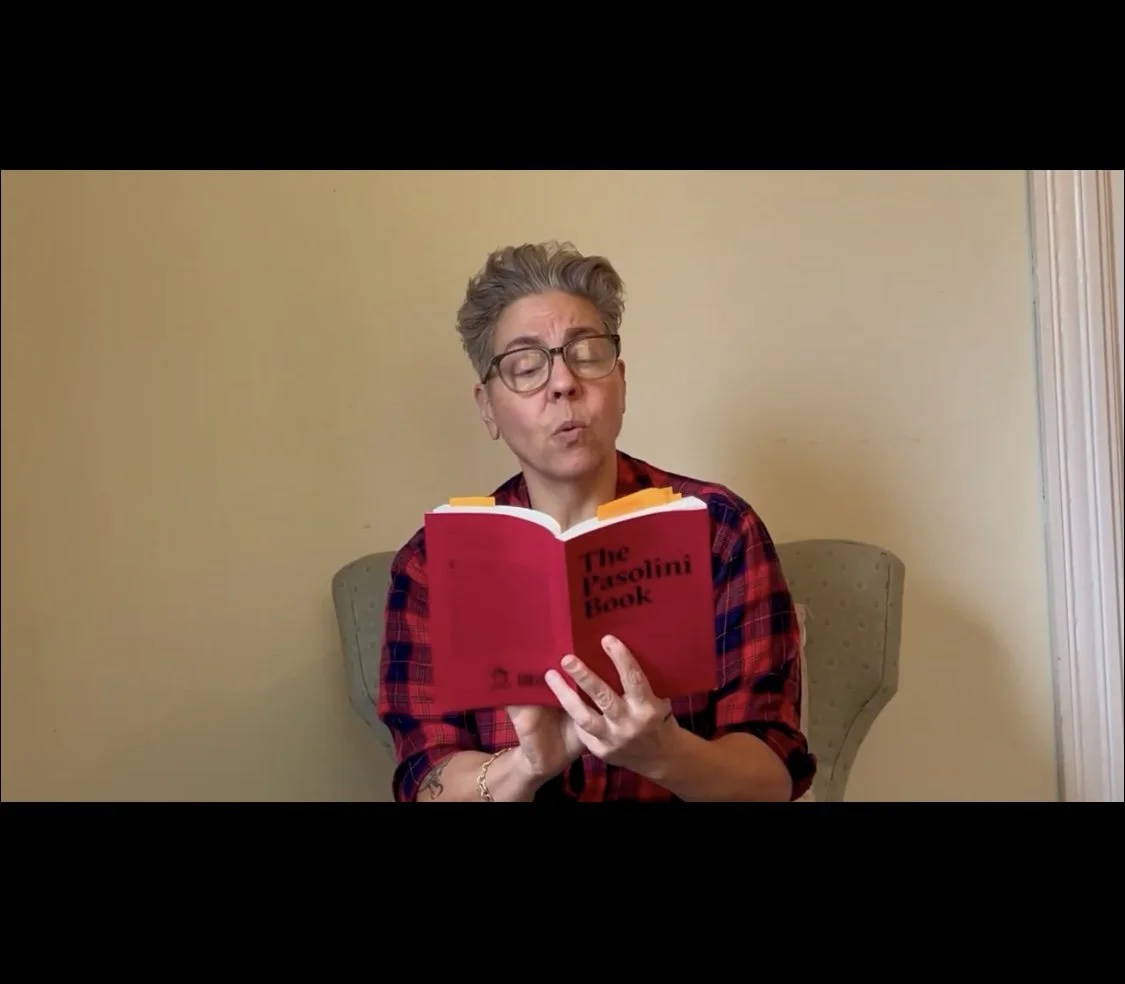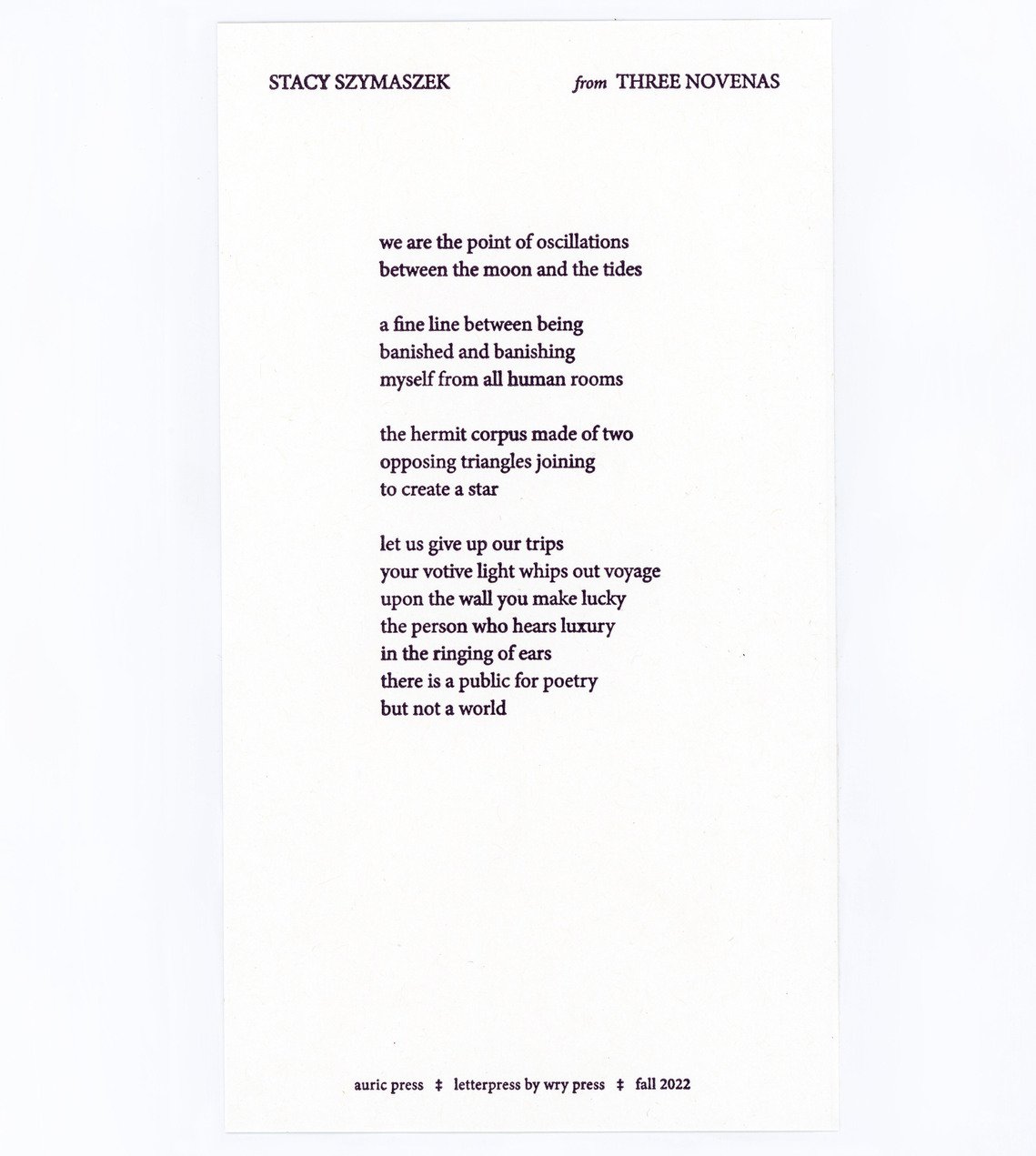This was FUN!
Pleasure and Gold #1 at CANADA
Pleasure and Gold #1, Organized by Joel Felix, Poetry Series featuring Kevin Davies, Miles Champion, and Stacy Szymaszek, Dec 5, 2025
Three Fold international mail art project
Announcing Three Fold Mailing
I contributed this quick sketch of Wren in pencil for an international mail art project and fundraiser celebrating five years of Three Fold Press with works for sale by more than 70 artists and poets from across the country and overseas. Nearly 200 of their published artists and poets contributed—inspired by the influential activities of Ray Johnson’s Correspondence School and Ken and Ann Mikolowski's Alternative Press (Ann Arbor, Michigan, 1969–1999). I was slow to post this and the auction has passed but you can check out the amazing art here.
Short Interview with Woodland Pattern's More About Series
I felt pretty honored that Essay was selected to be in WP’s January bundle of books in their Small Press Subscription Program! Their incentive for starting the subscription program is to offer assistance to publishers affected by Small Press Distribution's closure.
Q: If your book were an animal, what would it be? Why?
A: I'm going to go with the obvious and say a cow. I just visited Woodland Pattern and my book was on display with two other books that had cows on the cover (mine has one of Peter Hujar's photographs of a cow) but as far as I could tell only my book is literally about cows and the material lives of individuals in a specific dairy herd. I want people to know that the cow isn't a metaphor or symbol and to understand that the animals we eat have emotional lives and social structures. Our knowledge system obscures animal lives--if we are conscious of those epistemic forces I think we would make different decisions as consumers.
Q: What is one unexpected question that surfaced as you were writing?
A: The more I wrote Essay, the more I wanted to learn about bovines. So I wrote another book that attempts to bring together poetry and ethnography called Dispatches that I haven't tried to publish yet. The question was, how can I do more work with cows, what can that look like? So now I am in a Masters program in Anthrozoology and bovines are my focus species.
Q: What would your child/teenage self think of this book?
A: Ha! I am my teenage self for better or for worse! We all love the book. When I think about what I was writing about as a young person, my family, I realize that all 12 of my books are still about family--they each represent a widening. We love that.
Video from Carthage College Visiting Writers Series--November 4, 2025
I’m so happy this was recorded. It was special to read to students plus my mom and dad, brother and sister-in-law, and cousins! Thank you to Chuck Stebelton for hosting me and Woodland Pattern/Lewis Freedman for selling books.
Queer|Art|Mentorship "Stacy & Sons" Reading
I love this photo of me and 3 of 4 of the writers I have worked with over the past 14 years. It was a great night! Jess Barbagallo, Grey Vild, and ray levy uyeda.
Grey Vild, Jess Barbagallo, Stacy Szymaszek, and ray levy uyeda. Photo by Summer Surgent-Gough.
Review of Essay by Matt Longabucco in The Poetry Project Newsletter
Sharing the beginning here—find the whole review here. Matt’s such a good critical writer and I’m really honored to have his attention on my book.
In her book Beasts of Burden (2017), disability scholar and activist Sunaura Taylor identifies overlapping rhetorics of ableism and speciesism to expose the damaging premises of both. Even progressive environmentalists, Taylor points out, “betray a preference for the whole,” celebrating the supposedly more autonomous lives of wild animals over domesticated ones, and preferring to focus on the structural conditions necessary for sustainable farms rather than ascribe value to any particular animals populating them. Sustainability as a system ostensibly requires that we even take a rationalistic view of animal slaughter, a schema under which caring about any individual creature is viewed as “naive and sentimental.” But Taylor interrogates these deep-seated assumptions, showing how they emerge from a fear of embracing interdependency when in fact, as the feminist and disability theorists she cites have long argued, we are fundamentally interdependent beings; denial of this reality has permitted endless exploitation and oppression. Taylor argues, on the contrary, that any animal, however “dependent”—the state they were born into, in a cruel tautological logic—possesses the agency to “speak to us,” if only we pay heed to them “voicing their preferences and desires.”
You already know I’m going to say a poet is the one who can do it. Stacy Szymaszek’s latest work, Essay, opens with a calibrating:
The sunshine hit in such a way
meticulously tracked since the 1600’s
on that May day recovering from food poisoning it was brighter
than my own flame and ushered in an awareness of eternity the
light on my face within the Victorian house now in our care
touched in its duller burning days the faces of poets philosophers farmers actors
I tried for weeks to say even this much
to find a tone to live in for a while
Queer Art Mentorship presents Stacy & Sons - November 18, 2025
QAM is thrilled to present “Stacy & Sons,” an evening of readings celebrating poet and Multi-Year QAM Mentor Stacy Szymaszek’s new book, ESSAY. Stacy will read selections from the book, followed by additional readings by her four previous Queer|Art|Mentorship Fellows: Jess Barbagallo, Ricardo Maldonado, Grey Vild, and ray levy uyeda. It’s a literary family reunion 14 years in the making! The free event begins next Tuesday, November 18th at 6:30 PM at the Parkside Lounge in Manhattan.
Pasolini: Politics & Poetry Curated by Ara H. Merjian and Mila Tenaglia On the 50th anniversary of the death of Pier Paolo Pasolini
In conjunction with the exhibit Pasolini: Durations On the occasion of the screening of "Pasolini’s Last Words" (2012, 61 min.) Directed by Cathy Lee Crane.
I ended up not being able to travel to NYC to participate in person so I sent a video of me reading. Enjoy! And thanks to Kimberly Alidio for making the video in her studio. Super grateful the organizers have made a video of the event available online. Watch it here.
Specific Objects: Talks on Art in the Catskills
This interview happened a little over a year ago and I just never posted it. I really enjoyed talking with Miriam about Essay, which is now a book in the world! Love Miriam Atkin and Wave Farm.
“On this month's edition of "Specific Objects: Talks on Art in the Catskills," host Miriam Atkin speaks with Catskill-based poet Stacy Szymaszek. Stacy reads from their forthcoming book-length poem titled ESSAY (Krupskaya, 2025), and we discuss the poems, covering topics such as loving beyond usefulness, the essay as form, literary lineages, cows, and poetry as a means of / challenge to survival.”
REscue Press Will Publish About the House in Fall 2026
It took a few years to find a home for this manuscript, so I’m delighted that Rescue Press will publish it! I feel a deep connection with their vision and their geographical location. It does feel like a coming home of sorts.
Poems in BAEST 10
A few poems from ESSAY just posted at BAEST 10, the final issue. BAEST has been a home for my work for the past five years, always in good company. Thank you, Noah Ross.
Bos Books
Bos Books is a one-of-a-kind collection inspired by my obsessions: experimental poetry, poetics and related literature, nature and agriculture, art and the art of simply being. “Bos” (Latin for cow) reflects my connection with these fascinating creatures, who I have the honor of spending many hours with and am writing about. They've gently nudged me to create and share this selection of books. Many I have gathered from across the Hudson Valley, and many are from the personal libraries of me and my poet partner, Kimberly Alidio.
Bos Books currently resides at C. Cassis in Rhinebeck, NY thanks to the owner, liqueur maker, and poet Rachael Petach. They are on hiatus for the winter so check back in the Spring!
Donna the cow drawn by SS
Starving Is the Energy to be published by Antiphony Press, late 2025
Grateful to Ann Pedone at Antiphony for wanting to publish my long poem Starving Is the Energy. It’s length is between a chap and a book - so maybe a booklet.
Starving is the Energy explores the body, work, technology, and memory, weaving vivid details and moments of humor with reflections on music, literature, and philosophy. Influenced by the works of Antonin Artaud, John Clare, Julian of Norwich, and others, it considers the realities of illness, identity, and mortality while searching for meaning in the tension between life’s tenderness and its harshness. The farm where Szymaszek works grounds the narrative in sensory experiences: the smell of manure and fur, the feel of a curry comb in hand, the sight of a cow's damaged horn. These physical moments provide a connection to cycles of life and death, care and renewal. Recurring images, like cows flicking their horns or leaning into a touch, act as refrains that echo throughout the text, inviting contemplation of how small gestures can hold profound significance. Grooming the cows is both a task and an expression of connection and resilience, a way to push back against a world that often dehumanizes or demands conformity. Through these simple, tactile acts, the work transforms labor into a practice of mutual care, recognition, and quiet healing.
On Stacy Szymaszek’s Famous Hermits by Courtney Bush in Annulet
Midway along the journey of her life, a poet and beloved director of the Poetry Project leaves New York City. Though the poems in her new book Famous Hermits (Archway Editions, 2022) are not explicitly in Szymaszek’s signature annual journal form, they do not abandon her field of mastery: the diaristic recording of everydayness as a field for insight, revelation, and moments of pure beauty (or what beauty looks like to me), like the “elder woman” who appears in “Stop Making Peace” to sell her handmade soap, her voice suddenly lineated and descending the page:
mine has more
pine tar
in it
because frankly
I am
a master
of my trade (41)
Read the whole review here.
On Famous Hermits - Review of Famous Hermits by Will Fesperman in Social Text
“In the fall of 2023, it is a bit late to be reviewing Stacy Szymaszek’s Famous Hermits, which came out months ago. But that does not matter so much. In fact, there are parts of Famous Hermits that seem already posthumous. I wouldn’t write that in a review (for fear of sounding morbid), except that Szymaszek said it themselves, in an interview with Sallie Fullerton. To write posthumously means to write for a wider audience than your peers: dead, alive, and future people. That means you have to cast off the provincialism of some US poets, who are so fixated on their US lineages that they forget about the rest of the world.”
Read the whole review here.
Close Readings in Virtual Space: On Paul Blackburn's "Journal: April 19: The Southern Tier"
On Thursday, October 5th, 2023, I led a thinking-and-reading-through of Paul Blackburn's "Journal: April 19: The Southern Tier," followed by a short reading of my own work, part of The Flow Chart Foundation's CLOSE READINGS IN A VIRTUAL SPACE series.
Stacy Szymaszek on the Liberatory possibilities of outsider poetry
Read the conversation between me and Sallie Fullerton here.
“The titular poem in Stacy Szymaszek’s new collection Famous Hermits begins with a quote by Agnes Martin, delivered at a Poetry Project talk in 1980. “I know that you’ve been conditioned to…become famous, and make your mark, and all that kind of thing, but you won’t go very far…” Though it appears halfway through the book, the statement settles over the poems like a portentous cloud. A moment of shared recognition and complicity. The poet, however, seems to have already given this idea quite a bit of thought.”
Three Novenas published by auric press
Visit auric’s site to order.
2022
hand-bound softcover, 6.5 x 4.75 in
58 pages, edition of 200
$13
special edition of 26 chapbooks, signed and lettered
with purple covers and a 9 x 5 in broadside
letterpressed by Wry Press - $40
The Privilege of Thinking published in the New York Times Magazine
“Stacy Szymaszek’s “The Privilege of Thinking” borrows its title from the poem of the same name by the filmmaker and poet Pier Paolo Pasolini. In both poems, the terrain of thought is the shared space of this world, its landscapes and social conditions. Illumination is no one-way street. Thinking doesn’t radiate solely from the depths of the individual mind, but as Pasolini writes, “there’s light/in the world all around.” In Szymaszek’s poem, thinking in the city — eked out in scraps of survival-inflected time — reflects the city’s qualities: those of motion and vigilance, even a kind of gentle arrogance. But the city is a past-tense place. The present of the poet is in the desert, where a newfound stillness issues its own stark reply.” Selected by Anne Boyer
Read the poem here.


















